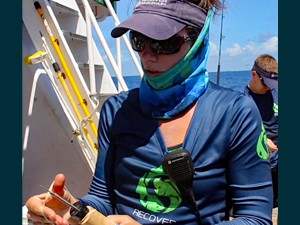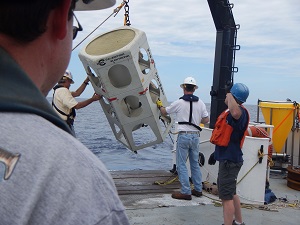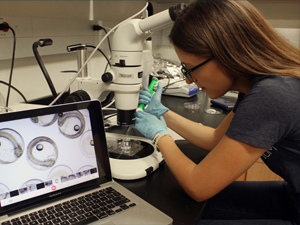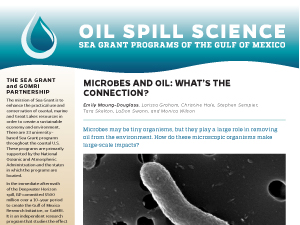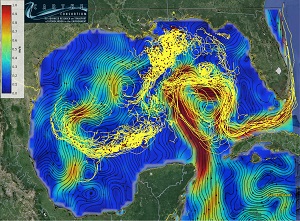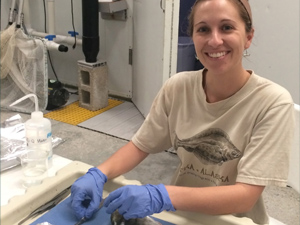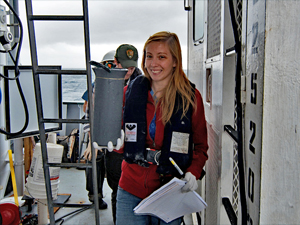How Grad Student Schlenker “Sniffs Out” Oil’s Effects on Mahi-Mahi
Laboratory studies at the University of Miami suggest that exposure to Deepwater Horizon oil may have negatively affected heart function in mahi-mahi, reducing their ability to swim efficiently. Lela Schlenker is expanding that research to investigate if and how oil exposure alters the way mahi-mahi migrate and respond to predators and prey in the wild.
Details
